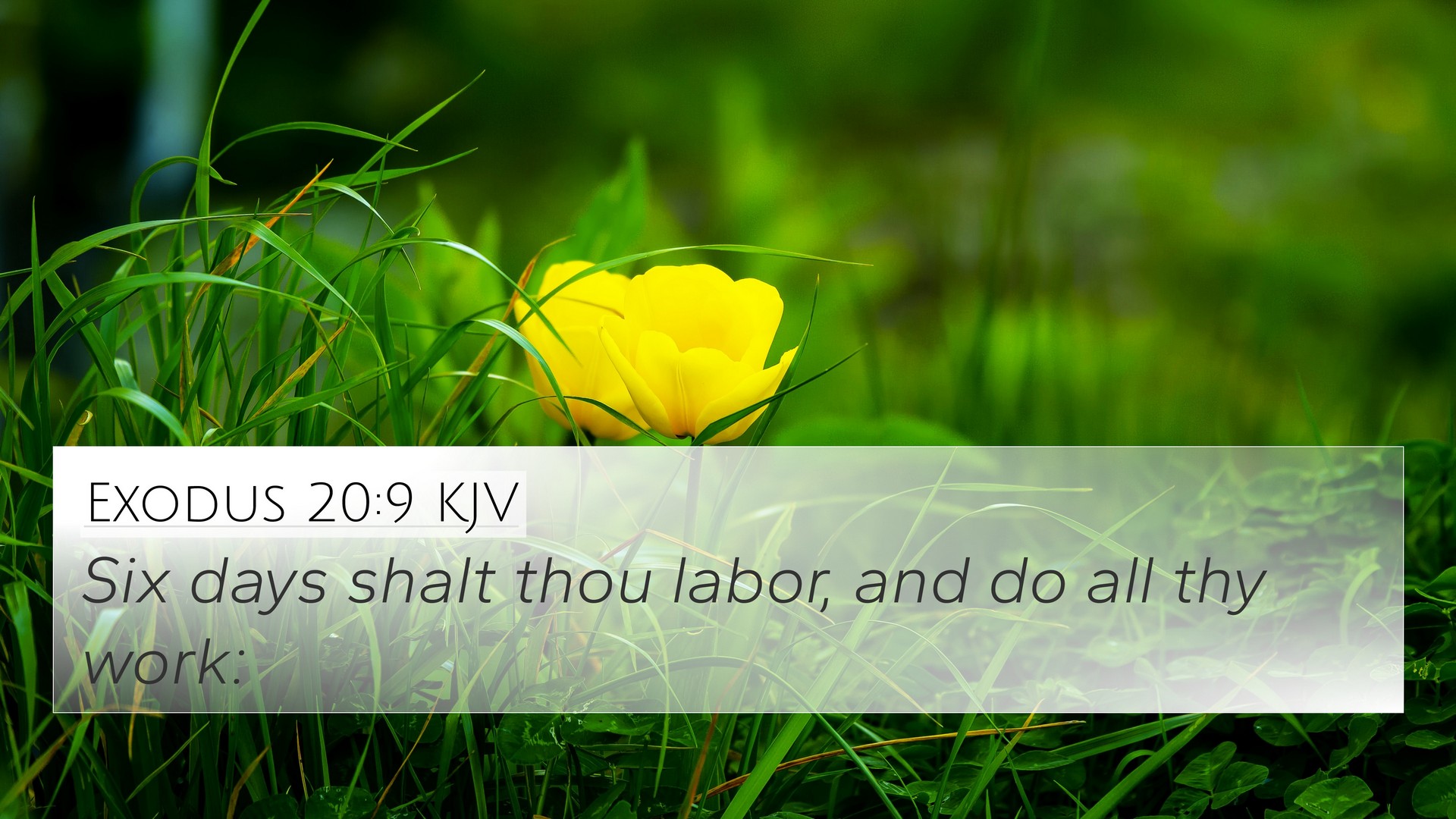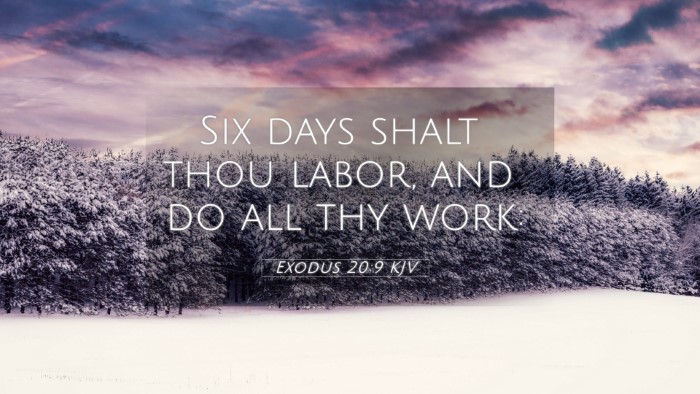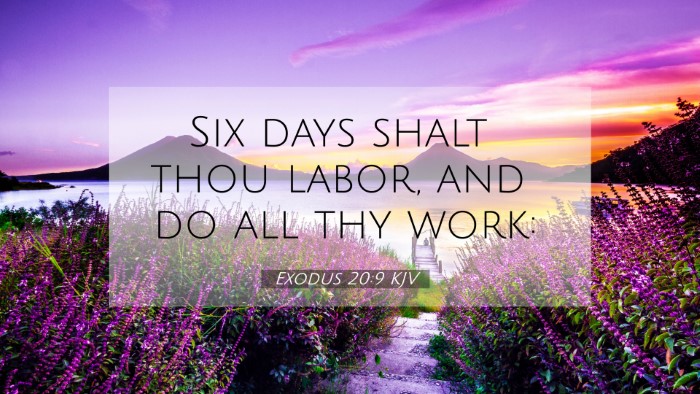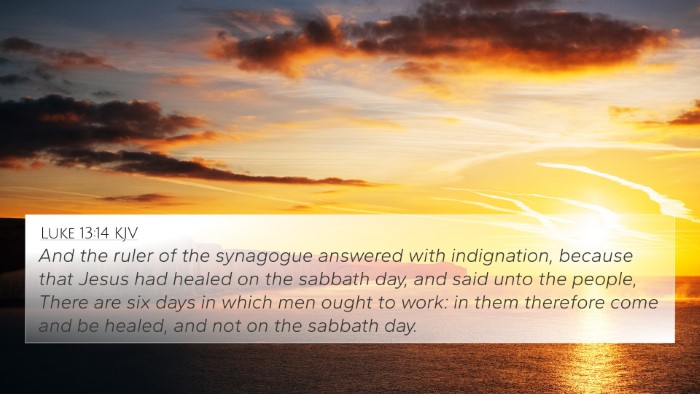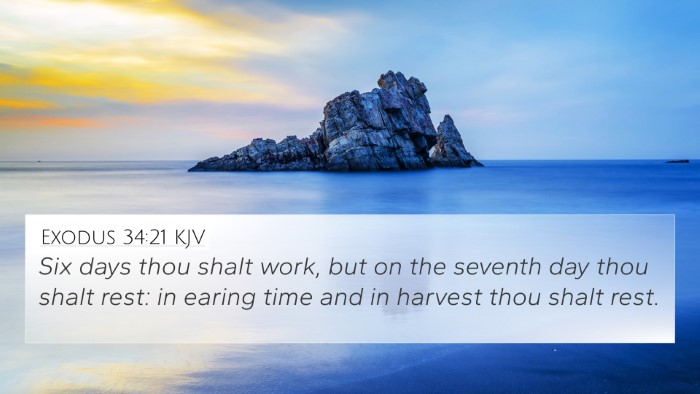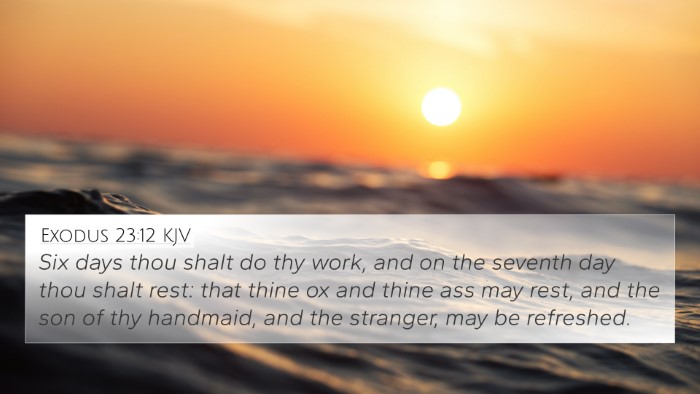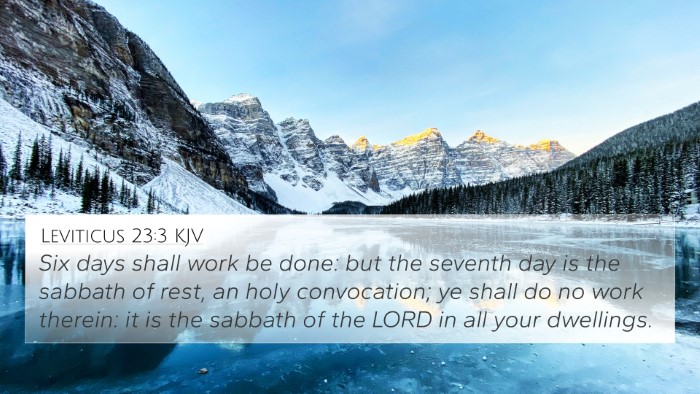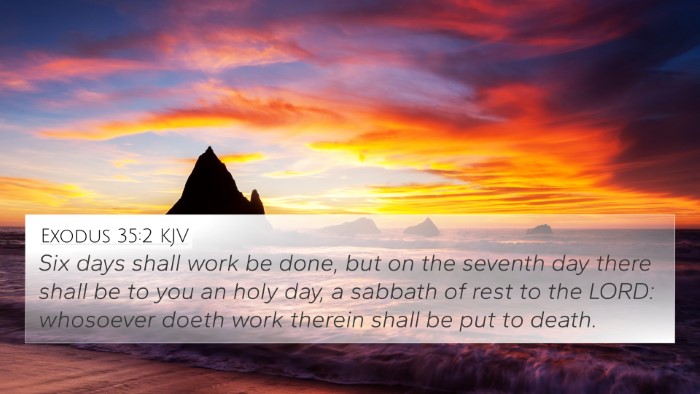Understanding Exodus 20:9
Exodus 20:9 states: "Six days you shall labor and do all your work." This verse emphasizes the importance of work within the life of a believer, highlighting both the principle of labor and the structure of a balanced life that includes rest.
Summary of Biblical Interpretation
The verse primarily conveys the idea that a portion of time is designated for work. Below is a detailed analysis combining insights from public domain commentaries:
-
Matthew Henry notes that God has provided us with an example of working for six days, as He created the world in six days and rested on the seventh. This correlation stresses the importance of diligent labor in accordance with divine order.
-
Albert Barnes emphasizes that work is a fundamental part of life that fulfills human purpose. By commanding a six-day workweek, God promotes industriousness and responsibility, positioning work as a sacred act in honor of the Creator.
-
Adam Clarke discusses the necessity of maintaining a balance between work and rest. The commandment does not merely focus on labor, but also serves to underscore the coming Sabbath's role in providing spiritual rejuvenation after six days of toil.
Thematic Bible Verse Connections
The connections between Bible verses often reveal deeper themes and insights. Below are relevant cross-references and their meanings:
- Genesis 2:2-3: Establishes the Sabbath after God’s work of creation, linking work and rest as foundational principles.
- Colossians 3:23-24: Encourages believers to work heartily, as if for the Lord, reinforcing the idea that secular and spiritual labor are intertwined.
- Proverbs 14:23: States that "In all toil there is profit," which highlights the value of hard work and its outcomes in life.
- 2 Thessalonians 3:10: Clarifies that those who are able to work should do so, indicating that responsibility is a core Christian tenet.
- Ecclesiastes 3:13: Recognizes that enjoying one’s work is a gift from God, affirming that labor has intrinsic value.
- 1 Timothy 5:8: Exhorts believers to provide for their family, underscoring the obligation to engage in work for the welfare of others.
- Proverbs 12:11: Affirms that he who works his land will have abundant food, suggesting that diligence leads to practical rewards.
Connections between Bible Verses
Identifying connections between Exodus 20:9 and other verses can also enhance understanding of biblical themes:
- This verse connects well with the theme of work ethics found in Ephesians 6:5-8, which encourages all to serve wholeheartedly.
- John 5:17 demonstrates the ongoing work of God, suggesting that God's activity continues even on the Sabbath, deepening the relationship between work and sacred rest.
- Matthew 11:28-30 invites the burdened to find rest in Christ, signifying the need for spiritual rest amidst physical labor.
Tools for Bible Cross-Referencing
For those interested in exploring these themes further, several tools and resources can facilitate cross-referencing:
- Bible Concordance: A comprehensive resource for finding words and topics across the Bible.
- Bible Cross-Reference Guide: Guides that provide verse relationships and themes across different books.
- Bible Reference Resources: Online tools and print resources to assist in finding similar verses and themes.
Conclusion
Exodus 20:9 not only commands us to work but also sets a precedent for how we should structure our lives. By engaging deeply with the text and understanding its scriptural context and connections, we gain richer insights into the value of labor and the divine order within which it operates.
